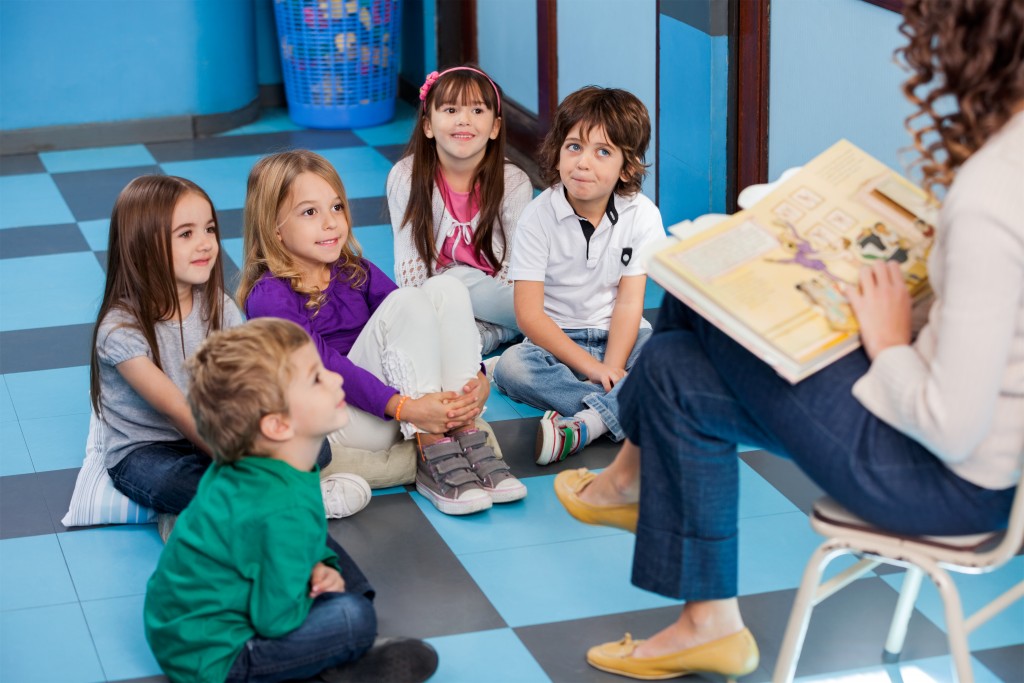- Play encourages creativity, problem-solving, emotional development, physical development, and language skills.
- Enrolling in a Montessori school provides stimulating play-based activities tailored to each child’s needs.
- Creating a designated “play space” in the home gives children an opportunity to explore and use their imagination.
- Regularly communicating with your child helps you stay on top of their progress and development.
As a parent, you always want the best for your child. You want them to learn, grow, and develop into successful adults. However, did you know that one of the best ways to support your child’s education is through play? Yes, play! Play is vital to early childhood development as it encourages creativity, problem-solving, and numerous other skills that will benefit your child throughout their life. Here’s how it supports your child’s growth and some ways you can incorporate it into your child’s daily routine.
The Different Benefits of Play:
Play is not just something fun for children — it’s also incredibly beneficial to their development. Play gives children the opportunity to explore, create, and learn in an environment that is safe and non-threatening. Here’s a rundown of the specific benefits playing can offer to your children:
Play Encourages Creativity:
Play is the ultimate avenue for creativity. When children are given the chance to play, they can let their imaginations run wild.

As a parent, you often underestimate the power of imaginative play, but it is this type of play that fosters creative thinking. When children are engaged in imaginative play, they are constantly thinking of new scenarios, ideas, and solutions, which is beneficial for their creative development.
Play Supports Problem-Solving:
Engaging in play is an excellent way to help your child develop problem-solving skills. As children play, they encounter challenges and need to find a way to overcome them.
Whether it’s building a tower with blocks or pretending to be a doctor, children need to come up with creative solutions to problems. This play type helps children learn to think critically and work collaboratively with others.
Play Boosts Emotional Development:
Emotional intelligence is crucial for success in many areas of life, and play can help children develop this skill. When children engage in play and express themselves, they become more aware of their emotions and how they impact others. By playing with others and sharing toys, children learn empathy, cooperation, and negotiation skills, all of which are essential for building positive relationships.
Play Improves Physical Development:

Play also plays a significant role in physical development. When children engage in physical play, such as jumping, running, or climbing, they build their gross motor skills. Additionally, when children engage in sensory play, such as playing with playdough or using their sense of touch to explore different textures, they develop their fine motor skills.
Play Enhances Language Development:
Play is an excellent avenue for language development. Children engage in play and are exposed to new vocabulary, concepts, and ideas.
They are also allowed to practice their communication, listening, and vocabulary skills. For example, when children play house or pretend to be a doctor, they practice their use of language and develop an understanding of different roles.
Enroll Your Kids in a Montessori School
If you want to ensure your child is getting the best education possible, enrolling them in an effective Montessori school is a great option. These types of schools focus on providing engaging and stimulating play-based activities that foster children’s physical, emotional, cognitive, and social development.
At these schools, children are given plenty of opportunities to explore and engage in imaginative, sensorial, cooperative, and creative play. Furthermore, the teachers at these schools are trained to help support your child’s development through play-based activities.
In addition to enrolling your child in a quality Montessori school, you can also incorporate more play into their daily routine at home. You can also create a designated “play space” in your home with these items to allow your children to let their imaginations run wild.
Regularly Communicate With Your Child
To ensure your child is developing correctly, it’s essential to communicate with them regularly. Ask them questions about their day and talk about their experiences.
This will help you stay on top of their emotional development and can also give you insight into how play is helping your child grow. For instance, if your child has been playing with blocks, you can ask them how they overcame a challenge while building the tower.
If possible, try to join in on the fun and be actively involved in their play. This will help create a bond between you and your child, and it will also give you the opportunity to see their progress firsthand.
Play is an essential part of early childhood development. It supports cognitive, emotional, physical, and language development and helps children develop crucial skills that will benefit them throughout their lives. As a parent, you can support your children’s education by incorporating play into their daily routines. Whether it’s creating a designated play area or engaging in imaginative play, you need to give your children the opportunity to learn through play.


